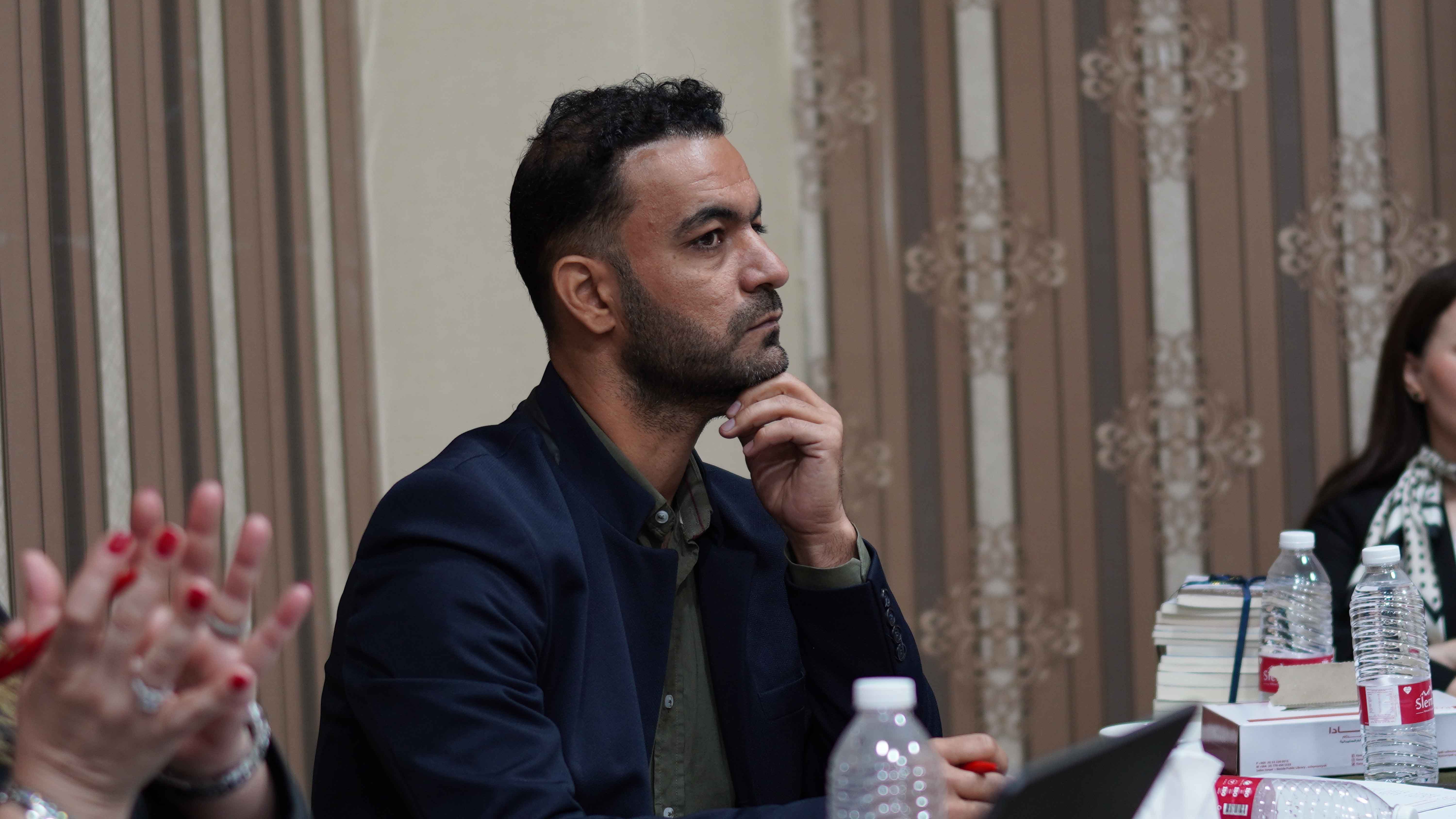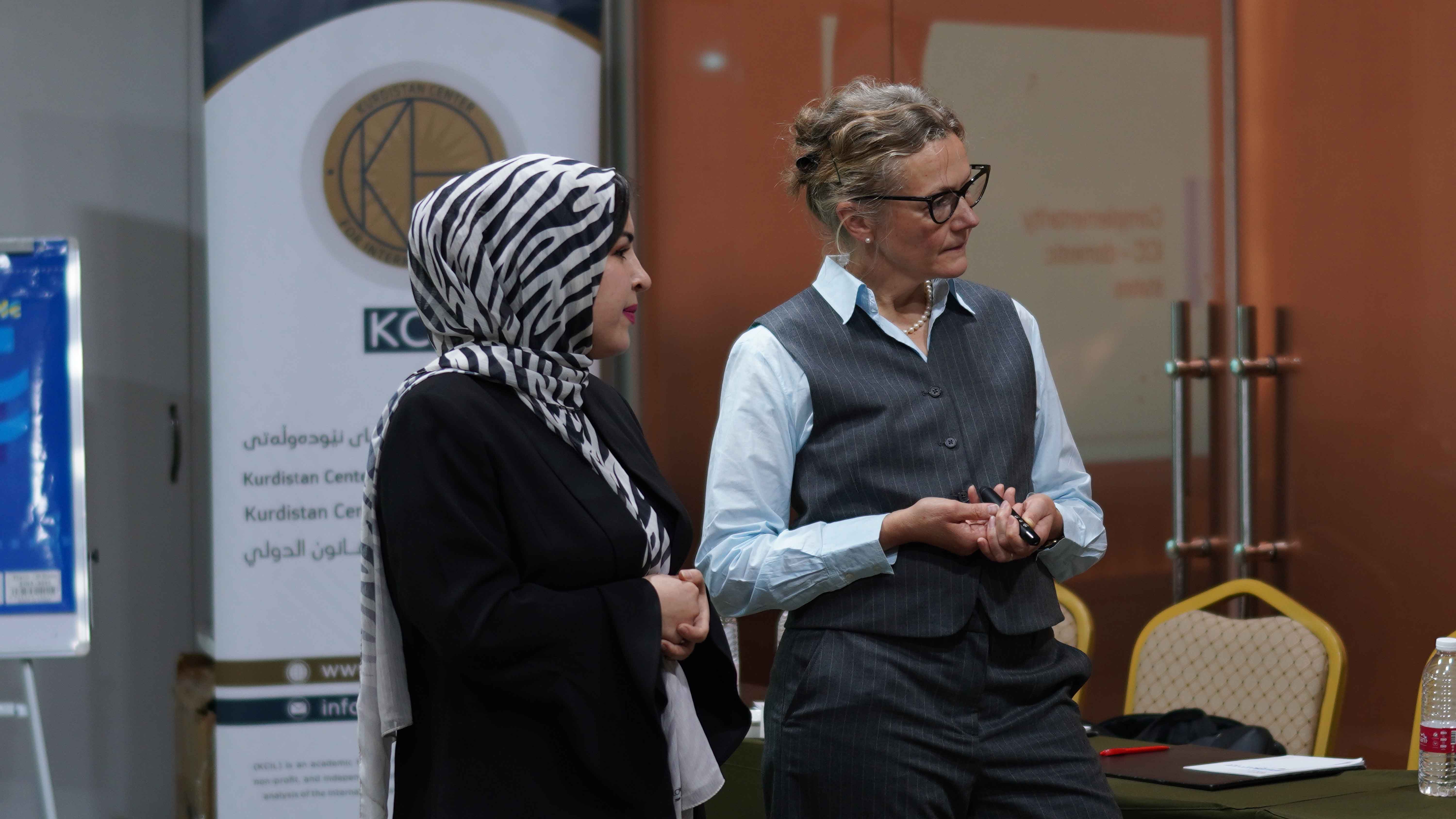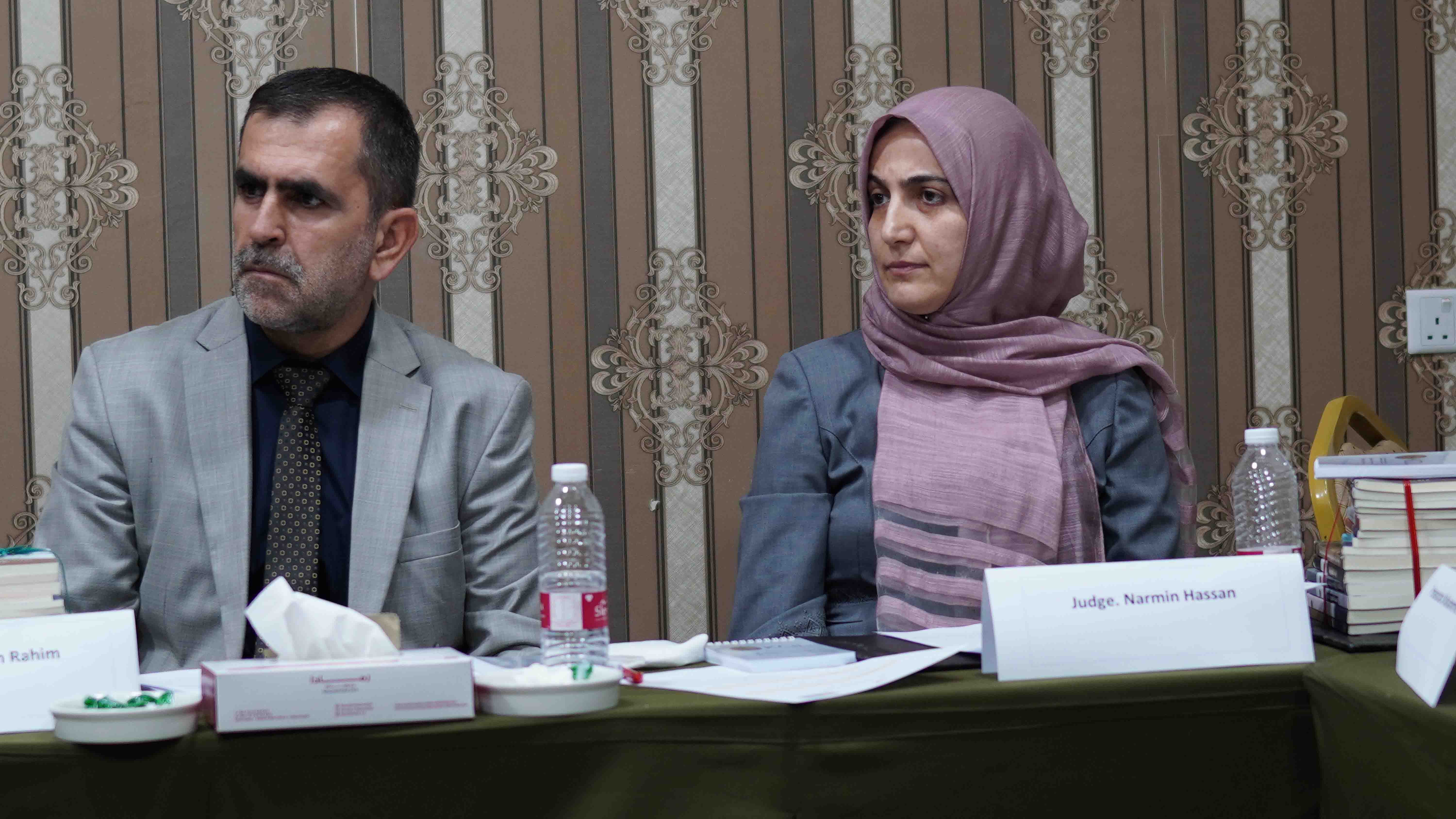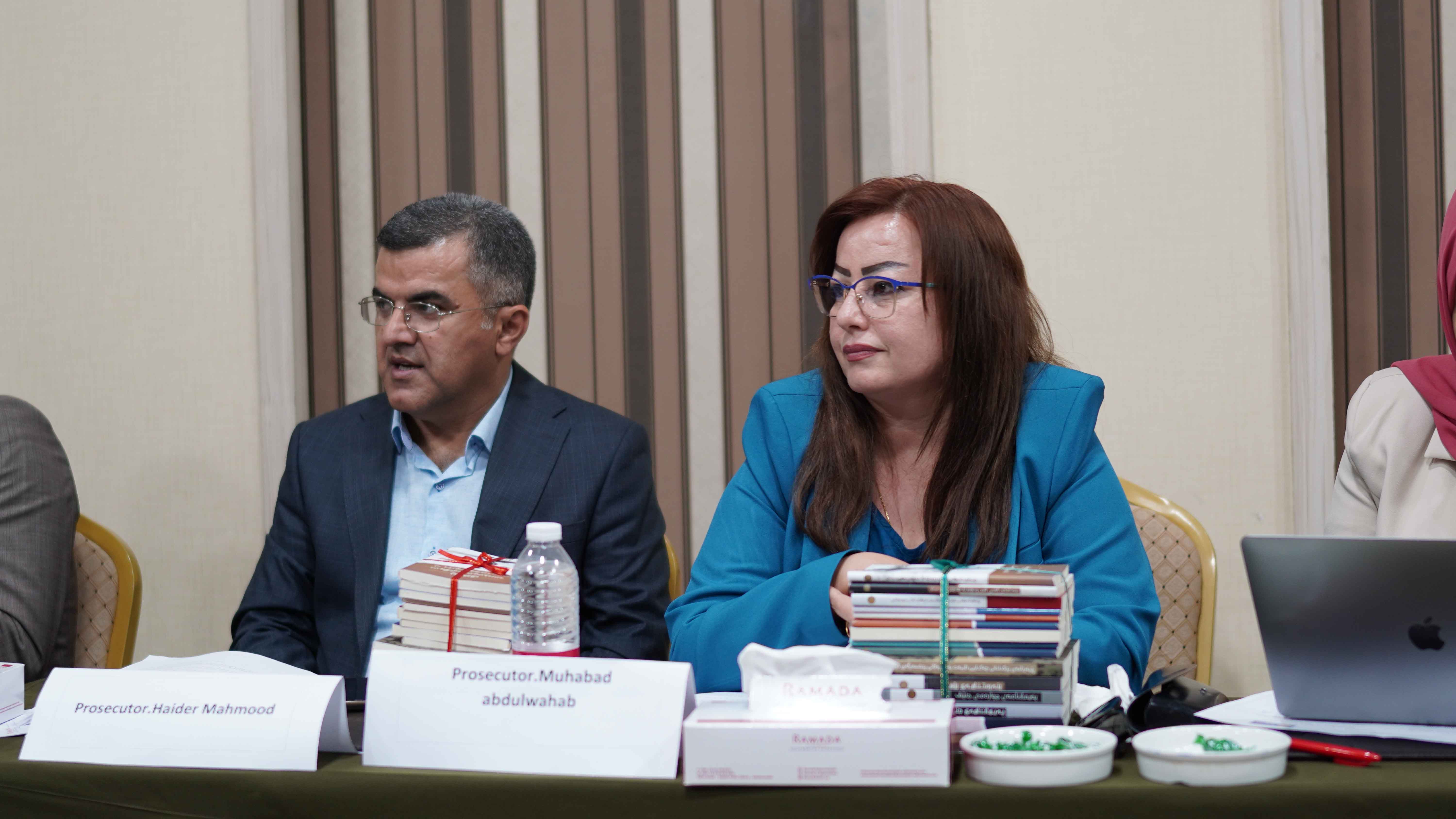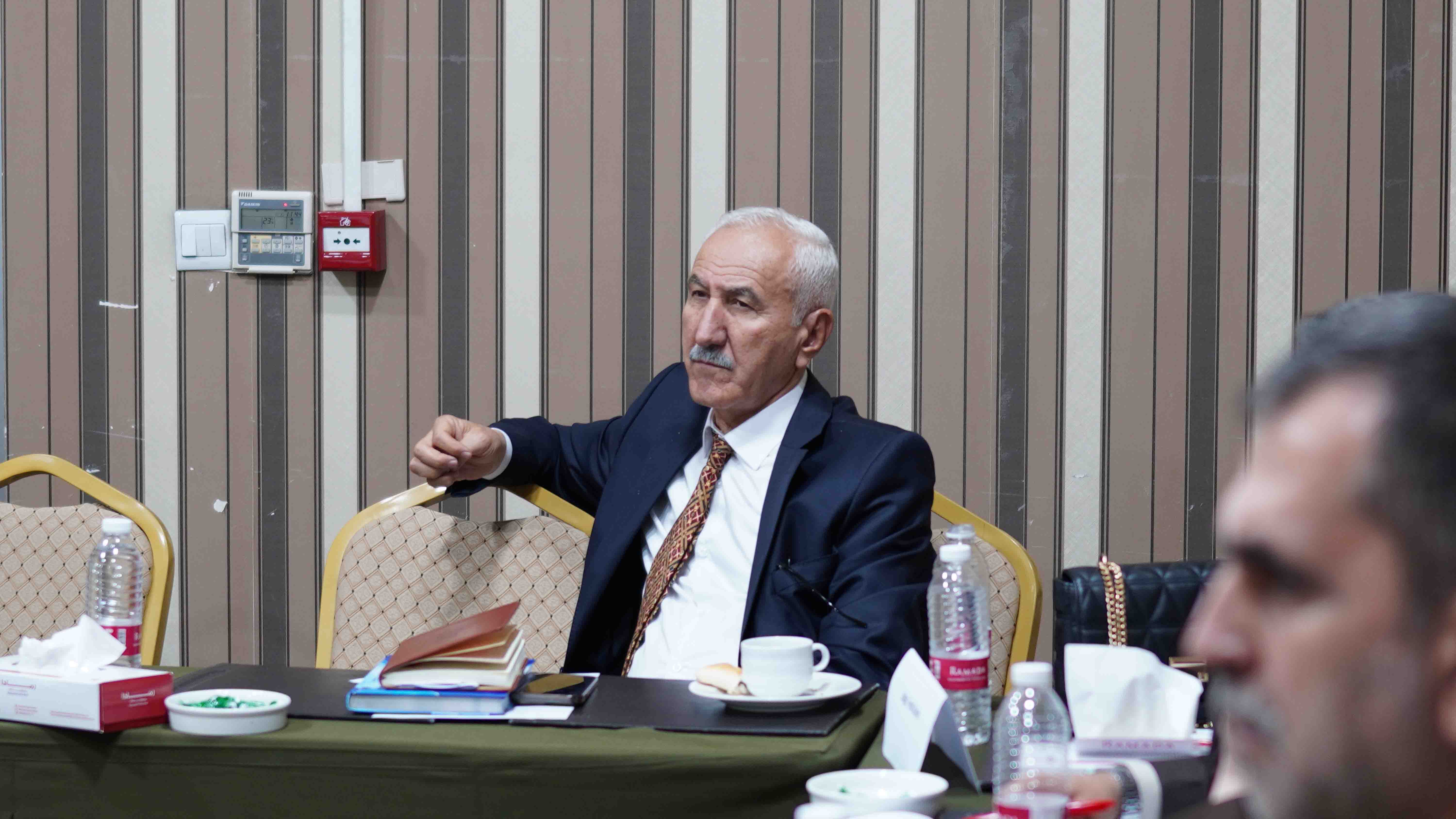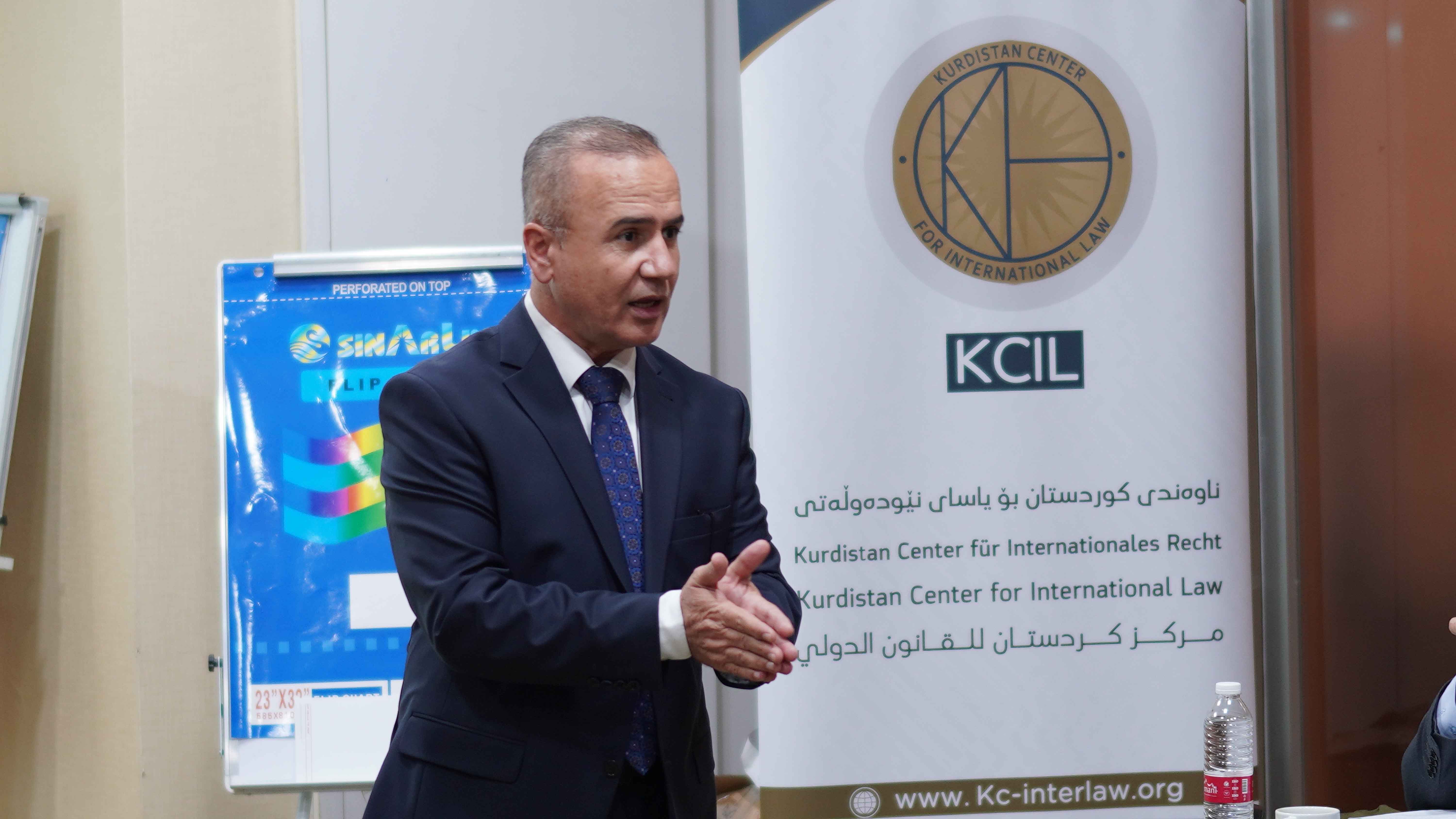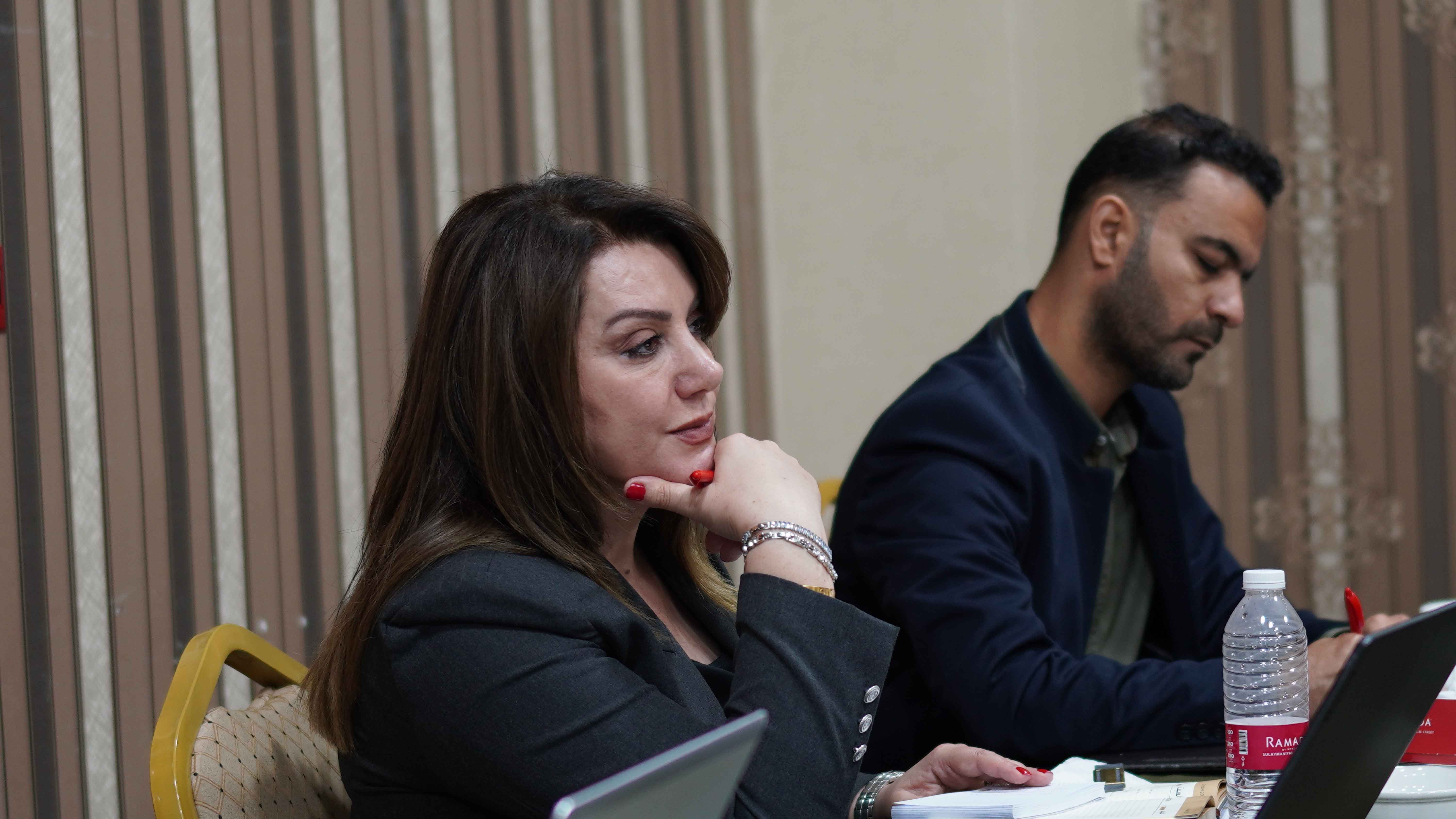The KCIL within the framework of justice resilience project in the Kurdistan
Region of Iraq (KRI), arranged a two-day workshop for 10 judges and
prosecutors from the KRI Judicial Council and Prosecutor General on October
5-6, 2024, in Sulaimani province. At the onset of the first day, Dr. Asos
Brakhas, Dr. Tawana Abdulrahman and Dr. Sarkawt Jalil provided the participants
with the opportunity to present their comments and opinions on the
anti-discrimination bill in the KRI, which they drafted as the first version.
In the framework of gathering the participants' comments on the bill, each
judge analyzed the legal provisions contained in the draft bill from their own
legal perspective. In parallel with the discussion process, all comments and
suggestions were taken notes by the KCIL team to further enrich the content of
the bill and reflect the current situation in the KRI judicial system. The
afternoon of the first day was devoted to introducing the participants to the
Fair Trial manual. It is worth mentioning that this manual was prepared by the
KCIL legal experts with the aim of developing the essential principles that
should exist in the courts to provide a fair trial for the KRI citizens.
Additionally, the universal principles that guarantee the right to equality and
justice for individuals in the courts, along with the rights provided by
domestic law for the individual in the courts in relative to access to justice,
were used in preparing this manual.
The
second day of the workshop commenced with a topic on the characters of
international criminal justice presented by Dr. Annie Pius, an expert in
international law and victims' advocate at the Kosovo Special Court. Then, as
an extension of the same topic, the participants were introduced to
investigation phases of international crimes within the International Criminal
Court, and specialized courts. So far, the last day session was devoted to
introducing the participants to the trial phase of international crimes,
criminal justice within the International Court of Justice and specialized
courts aligned with appealing phases by Dr. Mohammed Rasheed. It is worth
mentioning that within the framework of the presentations, the participants
were able to expand their understanding of the international legal system,
identify the gaps that exist in the national legal system, and shape reform
steps in which they can be effective in bringing about change and innovation in
the KRI judicial system throughout the courts.
